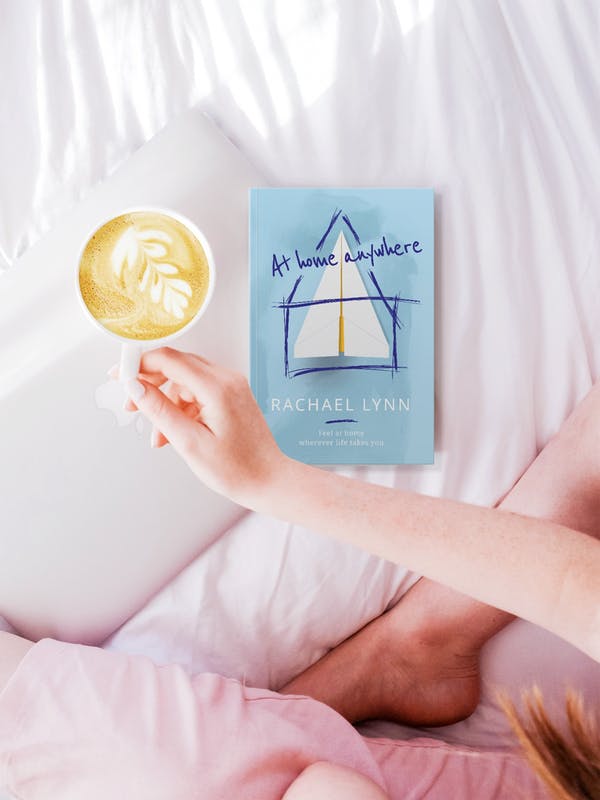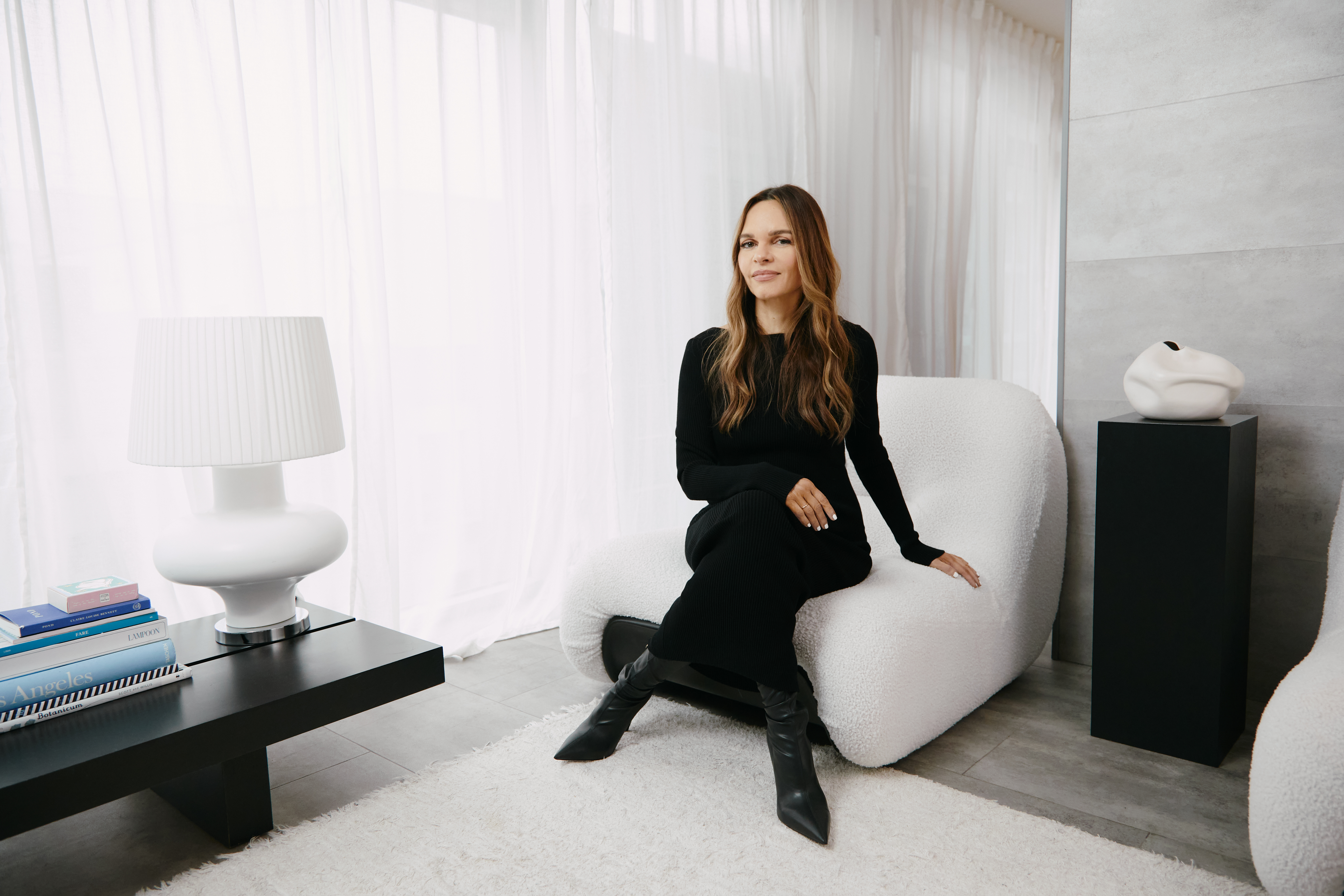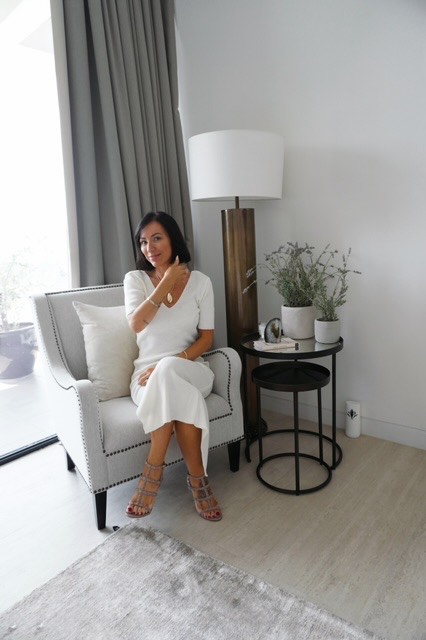Dubai Author RACHAEL LYNN talks about Journaling

Journaling is a powerful way to connect with yourself, clear negative emotions, make decisions, and build a resilience and trust within yourself you didn't know you had. Guided by you and seen only by you, there's a reason almost every leader, artist, and content person has had this practice. With as little as a pen and a sheet of paper, and 5 minutes you can have insight into yourself that will change the way you show up, help others, and live your life.
Rachael Lynn, author
Rachael Lynn is a Dubai based American-born author and community organizer who writes on many things including personal relationship with self, family and love. She believes that sharing your truth is the quickest way to freedom and works to facilitate that in herself and others who are ready. Her book “At Home Anywhere” was written from personal experience, when Rachael moved from Toronto to Dubai and found it difficult to adjust, despite her years of experience in the world of self-help. Rachael is also a passionate journal writer and now hosts journaling workshops and masterclasses in Dubai and virtually around the world.
The "Journaling Revolution” - Change your life with a pen and a couple sheets of paper.
What’s old is new again, and changing the way women show up in the world
Journaling, or diary keeping, has been around since writing existed. Famous leaders and authors who utilize pen and paper to sort through thoughts and ideas include Queen Elizabeth, Frida Kahlo, and Emma Watson, along with many other leading men. What will it take for you to be next?
Journaling will change your life
In the past diary keeping meant writing down record of the day’s events. But with the onset of Psychology and the world of personal development, a journal has become a safe place where you can bring up the deeper emotions you’ve experienced, view them more objectively, and even process them in order to make great changes in your life.
In a world where it feels like most everything is either intense or really filtered – both in our personal thoughts and actions– your journal is the ONE place where it doesn’t matter what you say, at all. You don’t have to be nice, worry about hurting anyone’s feelings, or second guess out of fear you might have an unpopular opinion. No one is there to see what you say but you. Where else can you have that kind of freedom?
Not for anyone’s eyes to see
My journal is the place where I learned to love myself. It’s where I walk myself step by step through the questions: What am I feeling? What do I want to feel? What can I do about closing the gap? Creating a journaling practice helped me find my husband (who I actually knew for 10 years before writing on the page “wait, it’s HIM”). My journal sessions gave me the idea for my first book At Home Anywhere, and have helped me make every major decision in the last decade.
You know that “self love” everyone’s talking about? It’s not about taking a bath or buying yourself flowers. It’s about learning to accept all the things that go on in your head and heart. Because when you get to know yourself, you begin to trust your decisions and see that your emotions and your thoughts aren’t YOU, they’re just a part of you.
Though writing goes back millennia’s, it wasn’t until the 1960’s that the benefits of journaling started being studied in a formal setting, and the 80’s when those studies indicated that the relief offered by writing in a journal has a direct impact on the body’s capacity to withstand stress and fight off or recover from disease.
Who doesn’t want to relieve a little bit of stress? Even if your life is feeling pretty good, journaling is a place where any of those emotions you pushed under the surface, knowingly or unknowingly to get by – can come and be free.

Where to begin?
You don’t need to have beautiful handwriting or know how to draw bullet journaling style to get that freedom. I utilize two methods of journaling to de-stress and reconnect with myself.
Free Writing
Free writing is also described as stream of consciousness writing or the Julia Cameron coined practice of ‘Morning Pages’. What do you do? Open up your notebook and just start writing. Anything that comes to mind, in any order, making sense or not making sense.
Prompt Based Journaling
Prompts are questions or fill in the blank statements to get you started. Some to start with:
What am I feeling right now? Why?
The thing I’m most afraid for people to know about me is…
I would love it if I was able to…
What would the older, wiser version of me want to tell me right now?
5 things I can appreciate about my life right now are…
It’s not just about gratitude lists and writing down goals
Get over the idea that you need perfect grammar, only write down positive thoughts, or have to take a certain amount of time. Write what comes up. That’s it. If that sounds frustrating, it may be even more of a reason to try. Releasing performance pressure and perfection is the most significant step to change.
Start with 5 minutes
You don’t have to be ready to go to a weekend retreat or take 20 minutes every day to reap the benefits of a journaling practice. Just sit down and write for 5 minutes. Push yourself not to overthink, and write down the first thing that comes, unfiltered.
Don’t have 5 minutes? Once a day, complete the sentence, “Right now I feel _____ because…” Trust me, acknowledging yourself even in this way will build your resilience with life.
Get messy and let it flow
Dedicating this time to yourself will change your life because finally, you can count on you to just be yourself and learn to love her, without a “purpose” or need to accomplish something. Bestselling Author Tim Ferriss shares, “I don’t journal to ‘be productive.’ I don’t do it to find great ideas or to put down prose I can later publish. The pages aren’t intended for anyone but me. It’s the most cost-effective therapy I’ve ever found.”
And in today’s world – isn’t that a relief?


.jpg)
.jpg)






